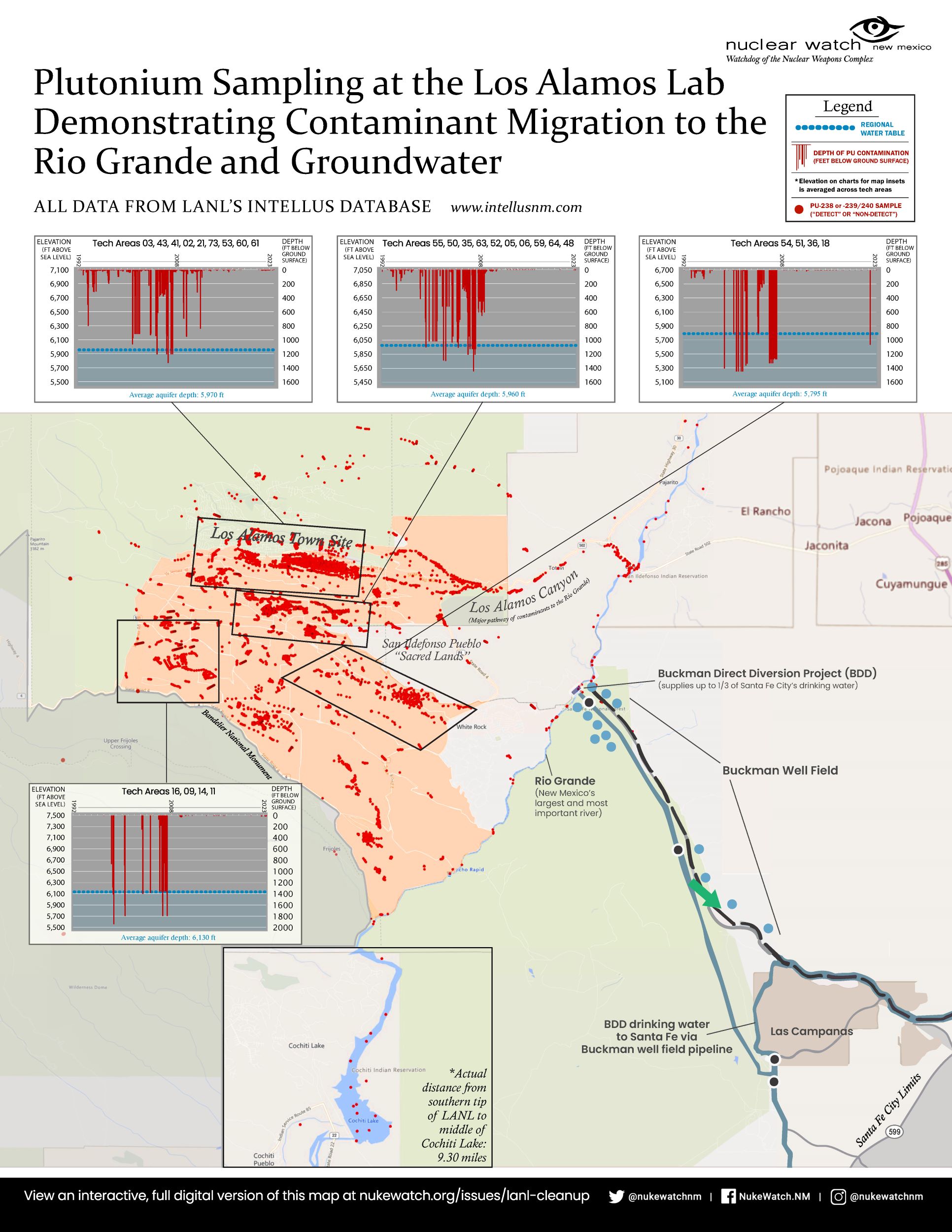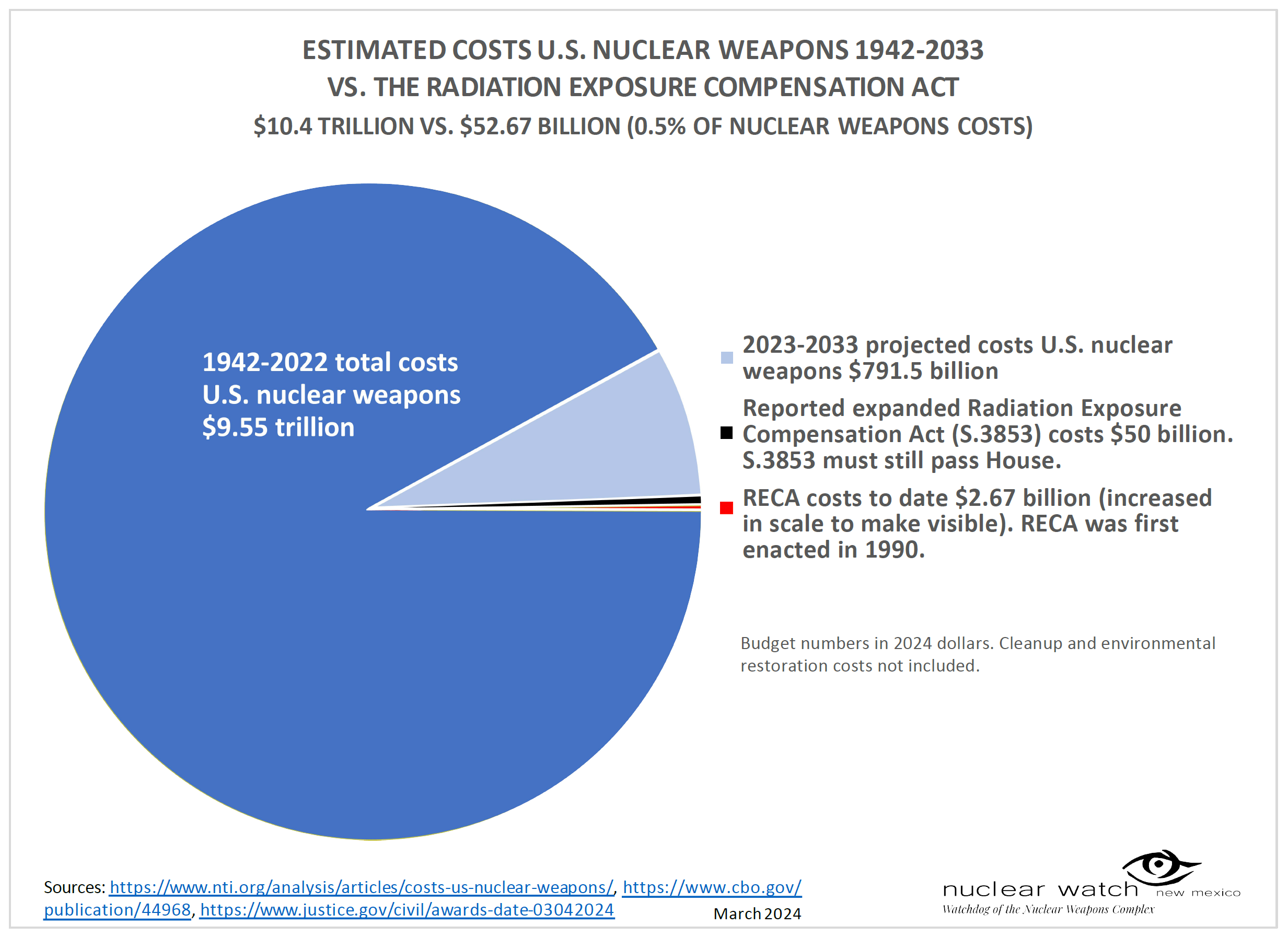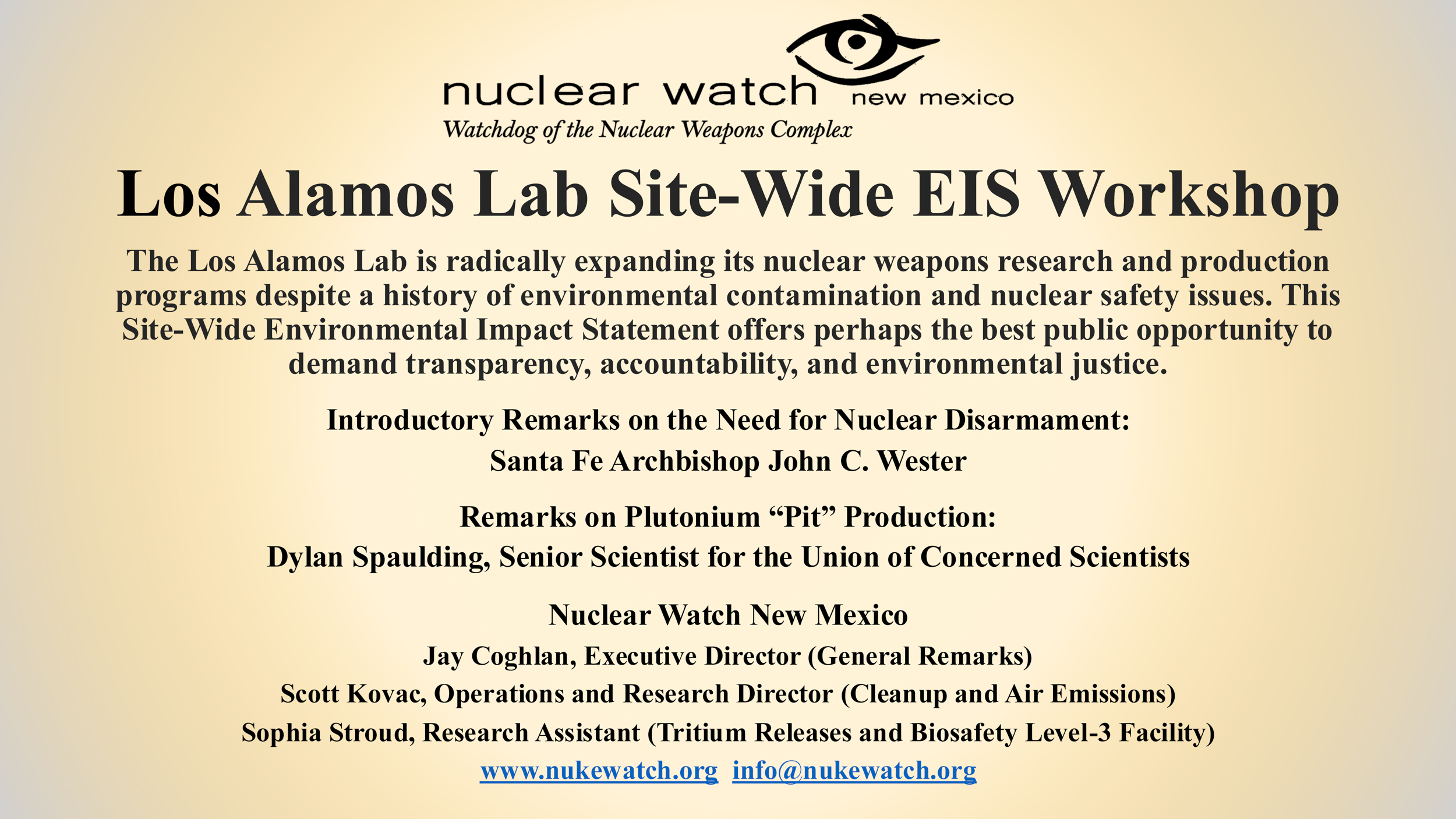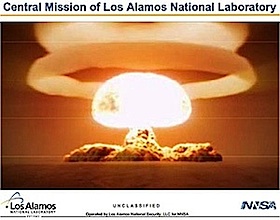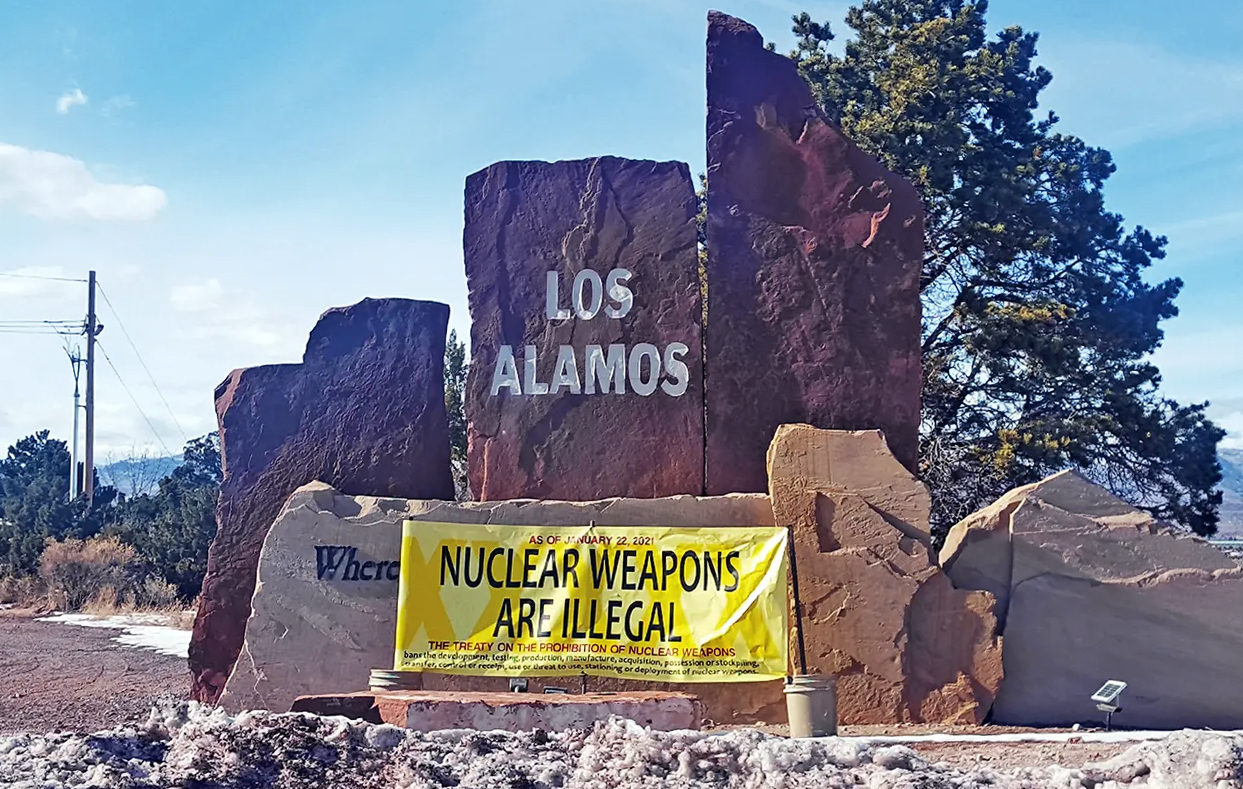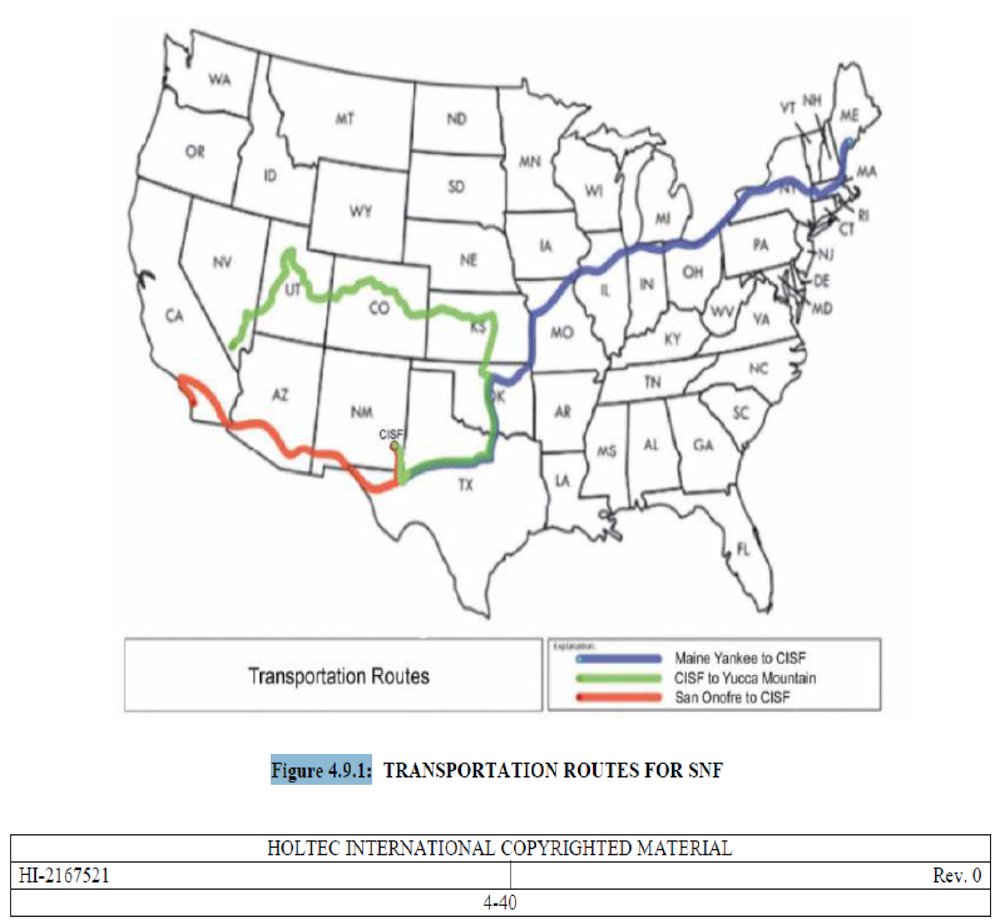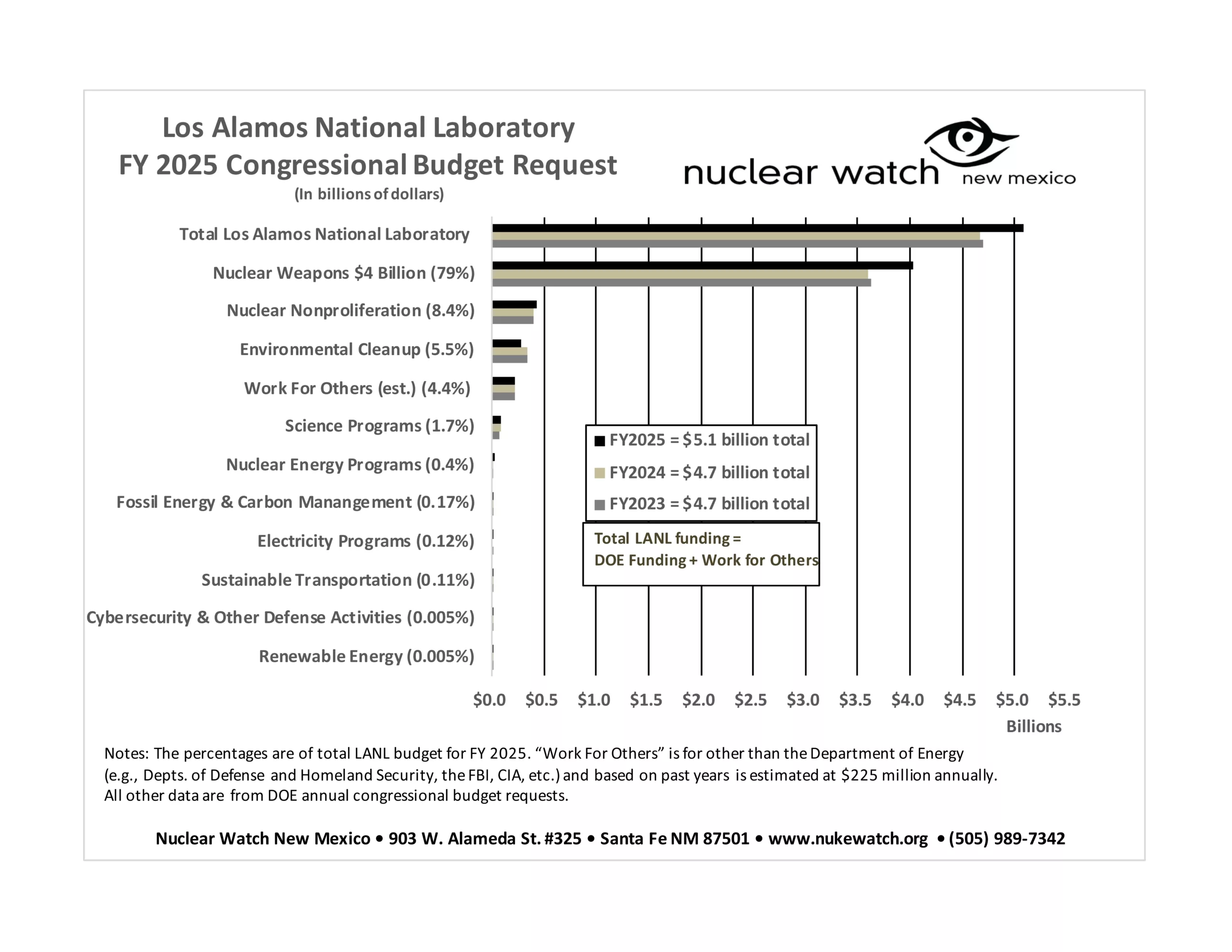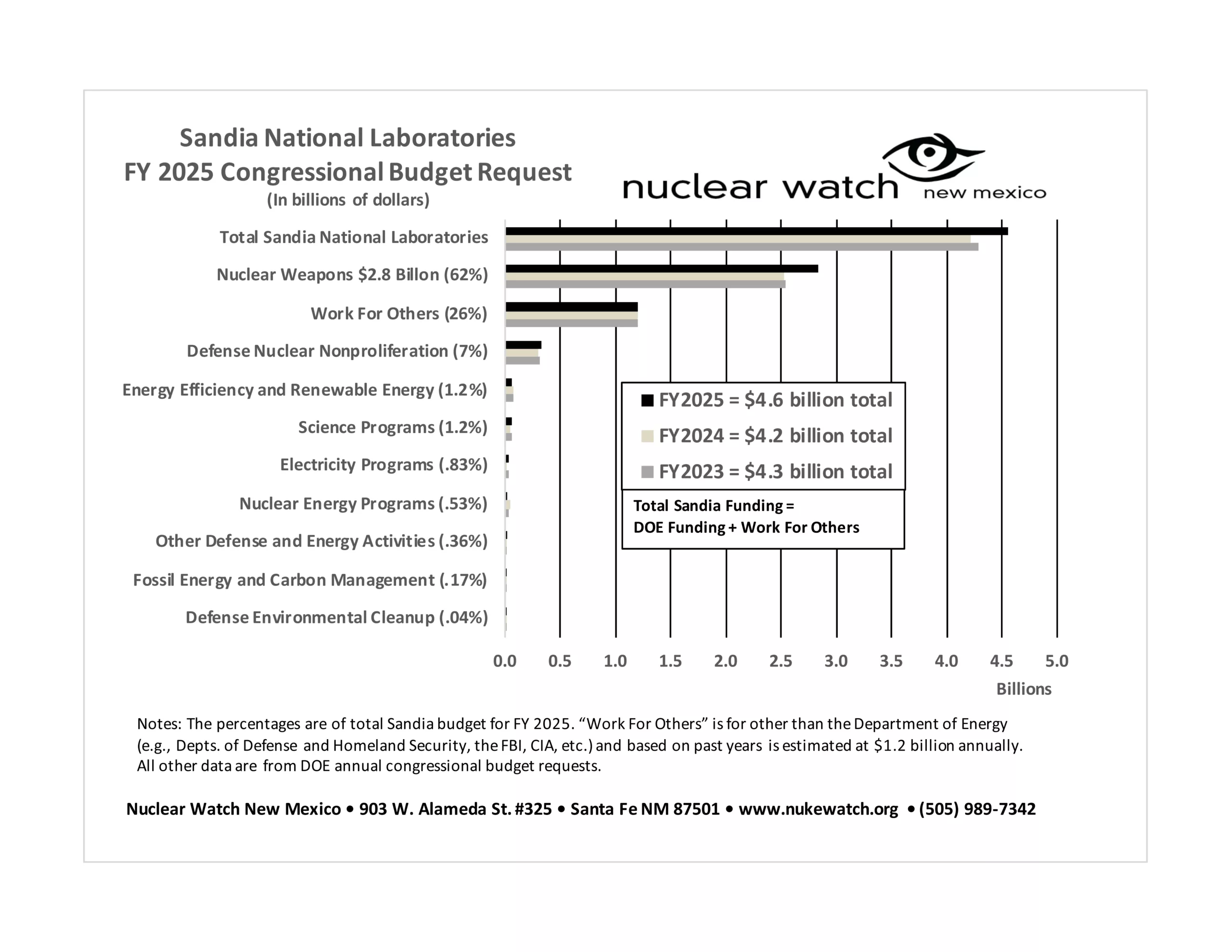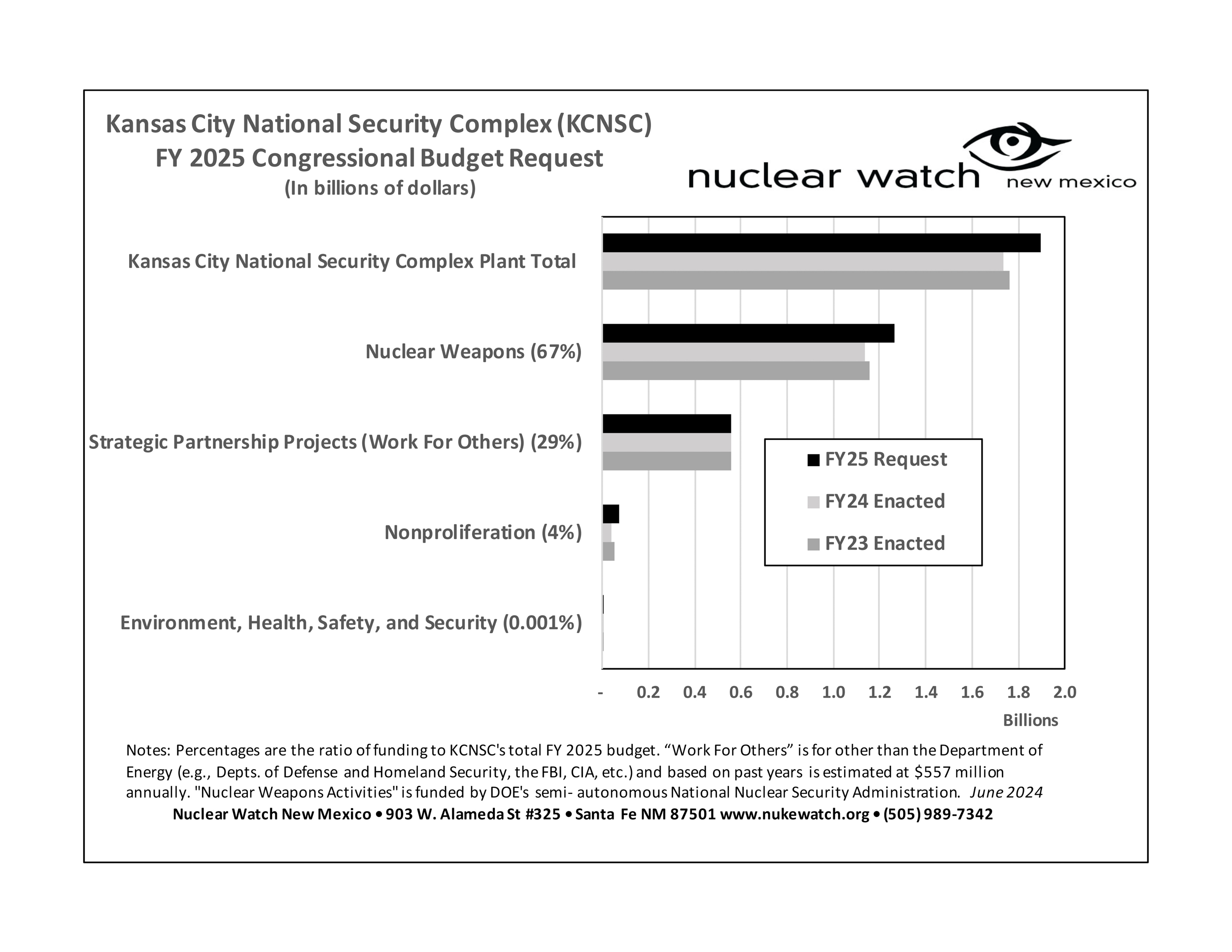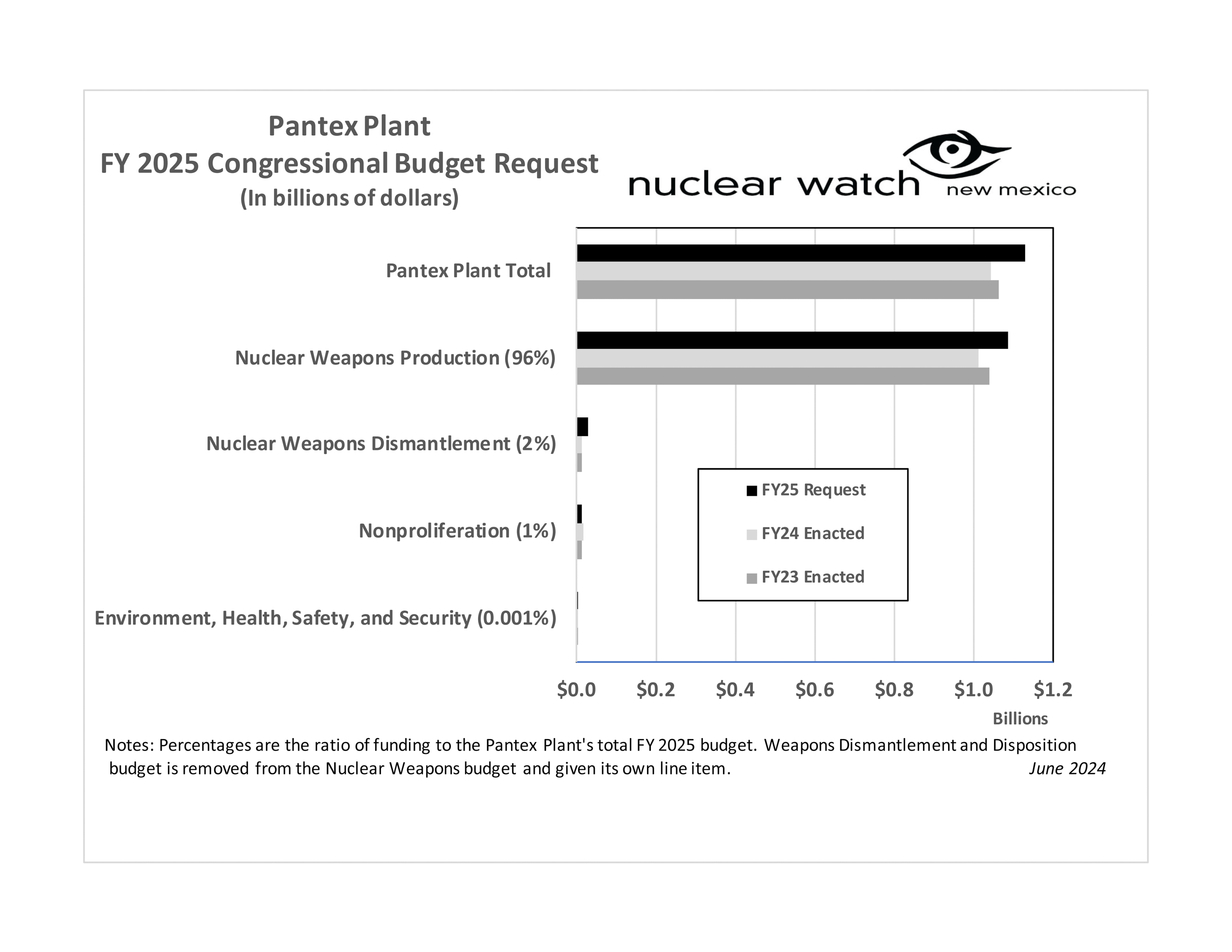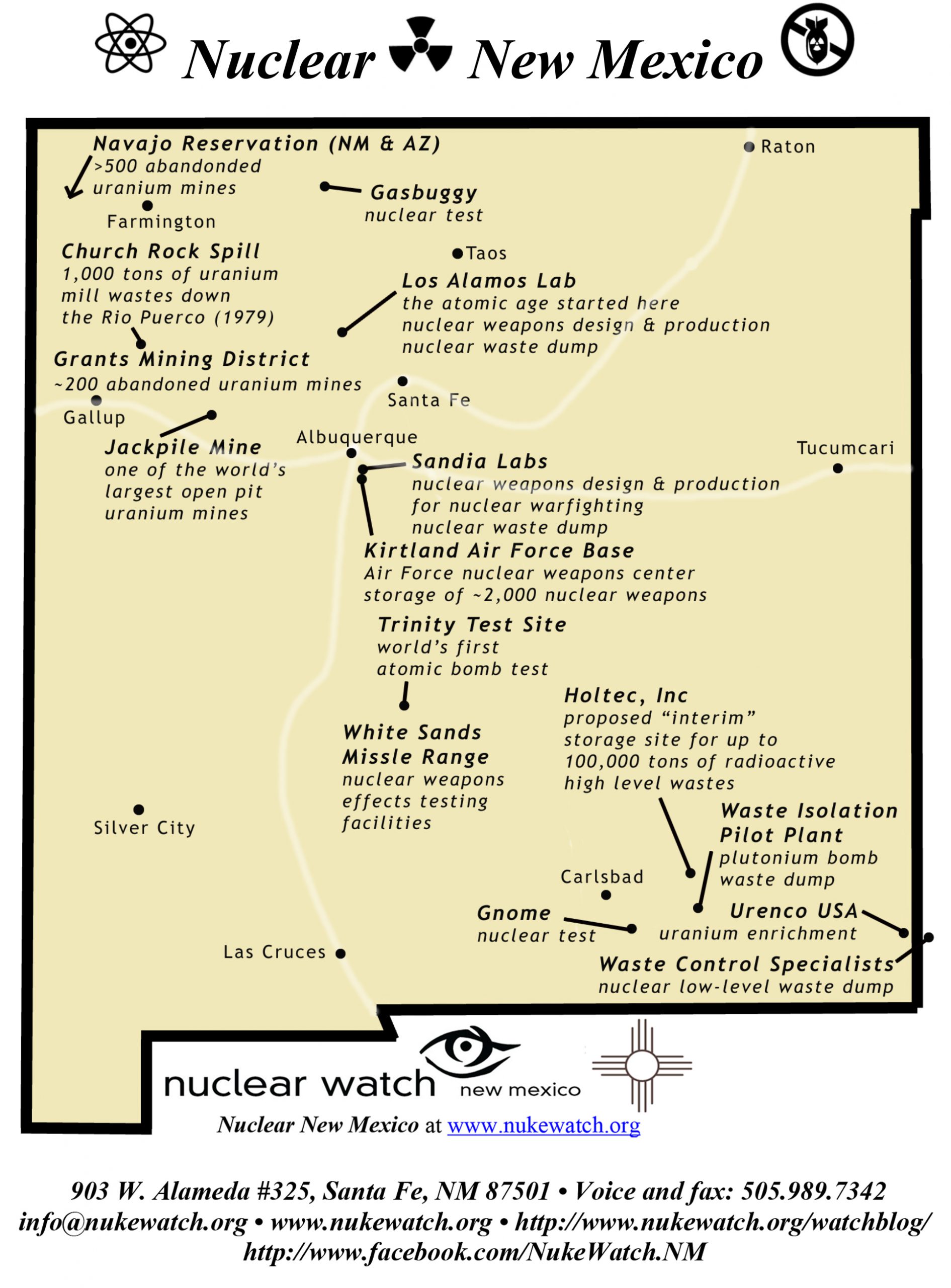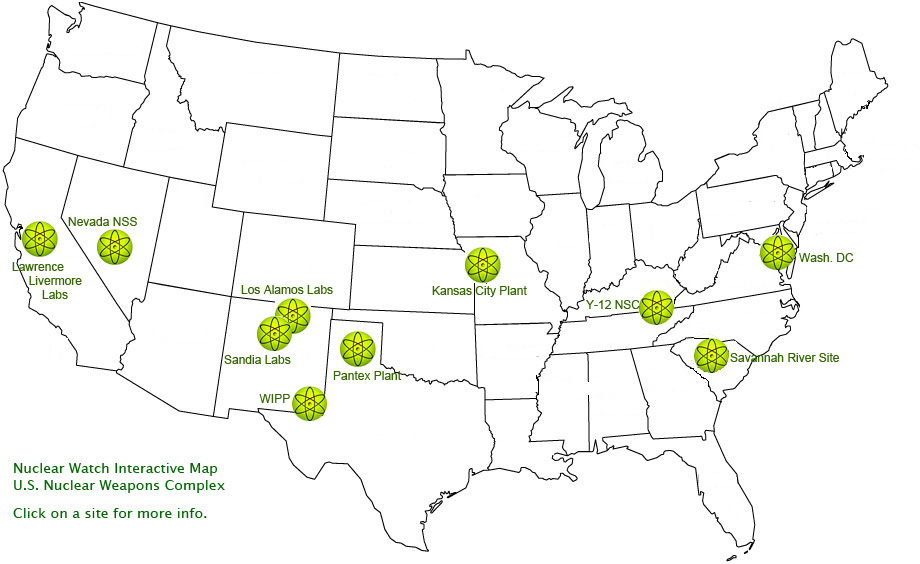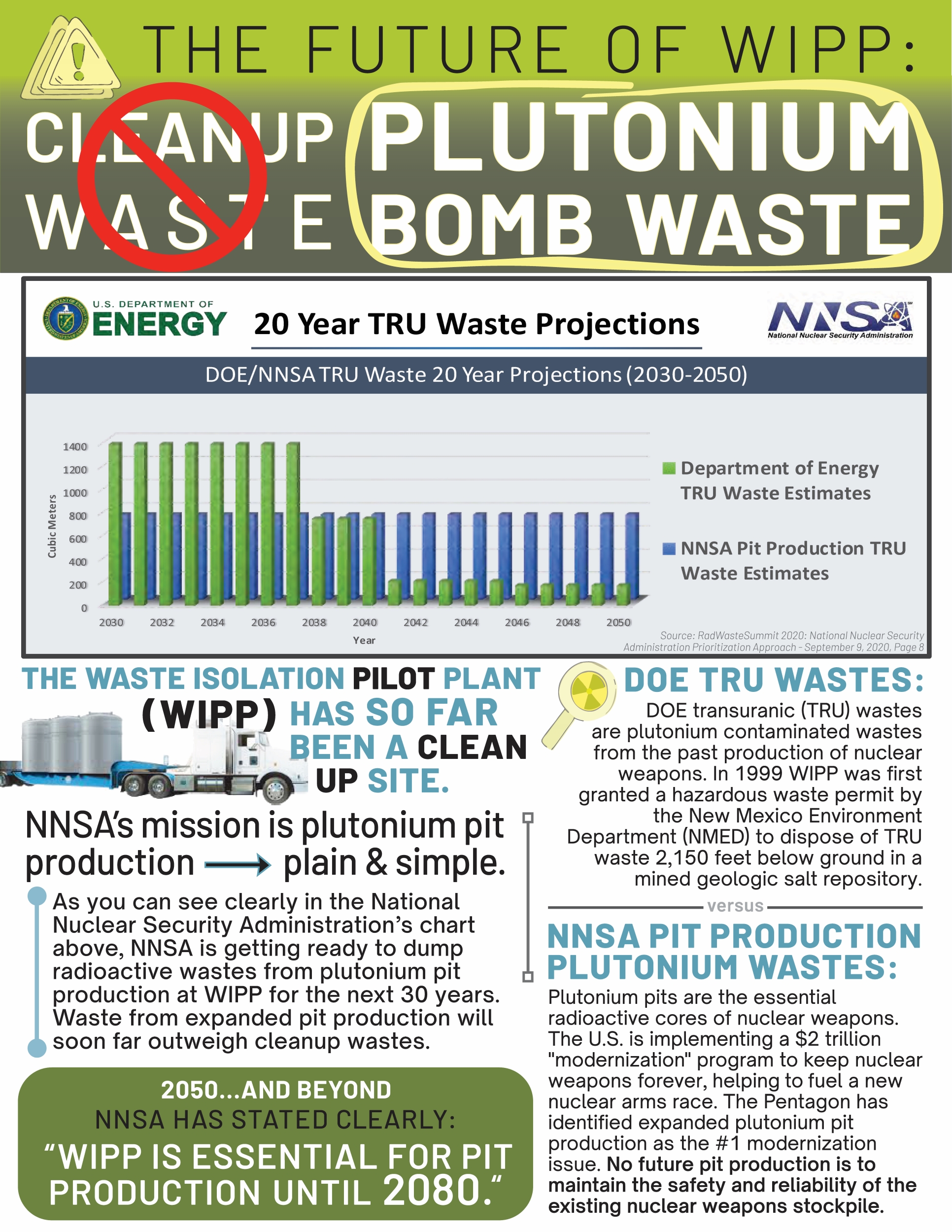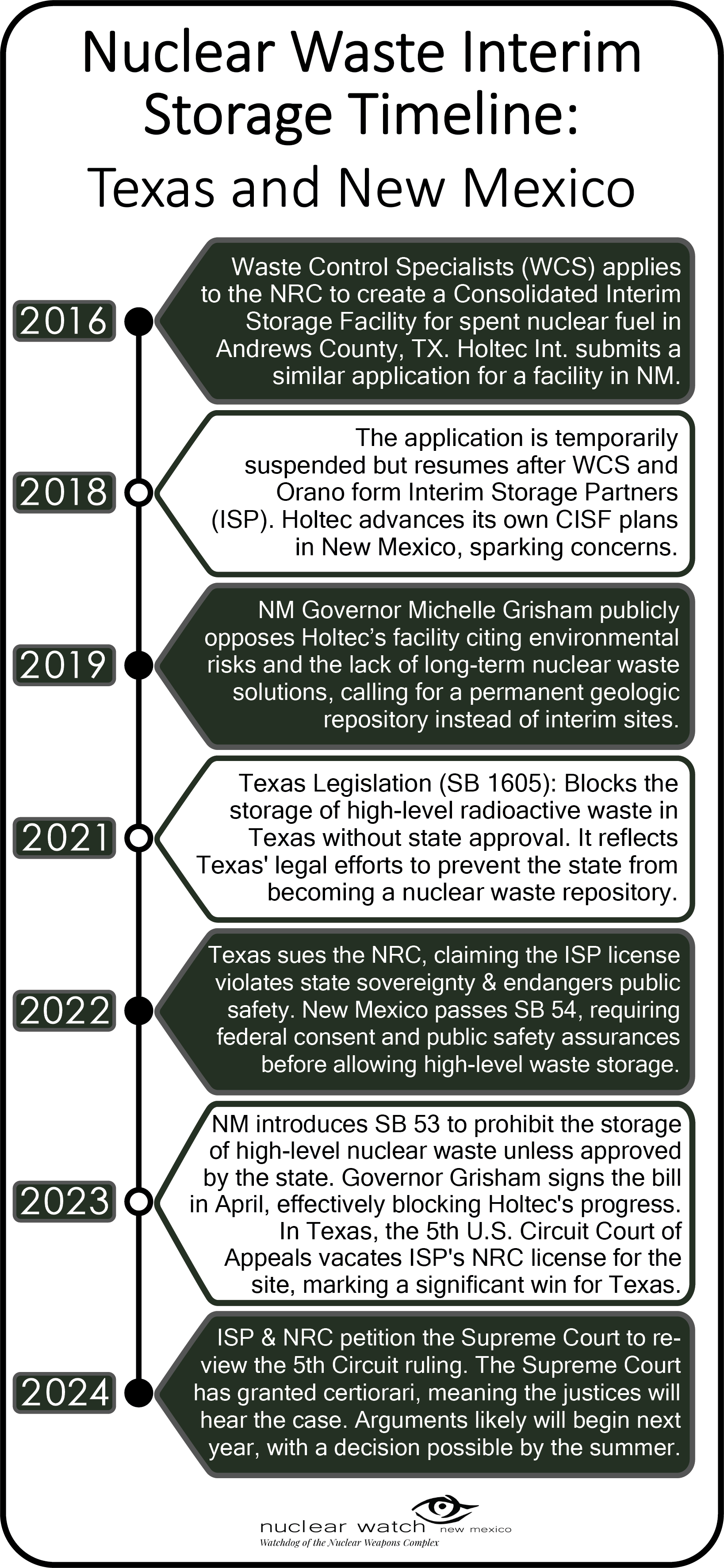QUOTE OF THE WEEK
Nothing Found
It seems we can’t find what you’re looking for. Perhaps searching can help.
LANL’s Central Mission: Los Alamos Lab officials have recently claimed that LANL has moved away from primarily nuclear weapons to “national security”, but what truly remains as the Labs central mission? Here’s the answer from one of its own documents:
LANL’s “Central Mission”- Presented at: RPI Nuclear Data 2011 Symposium for Criticality Safety and Reactor Applications (PDF) 4/27/11
Banner displaying “Nuclear Weapons Are Now Illegal” at the entrance in front of the Los Alamos National Lab to celebrate the Entry Into Force of the Nuclear Weapon Ban Treaty on January 22, 2021
Nothing Found
It seems we can’t find what you’re looking for. Perhaps searching can help.
Follow the Money!
Map of “Nuclear New Mexico”
In 1985, US President Ronald Reagan and Russian President Mikhail Gorbachev declared that “a nuclear war cannot be won and must never be fought.”
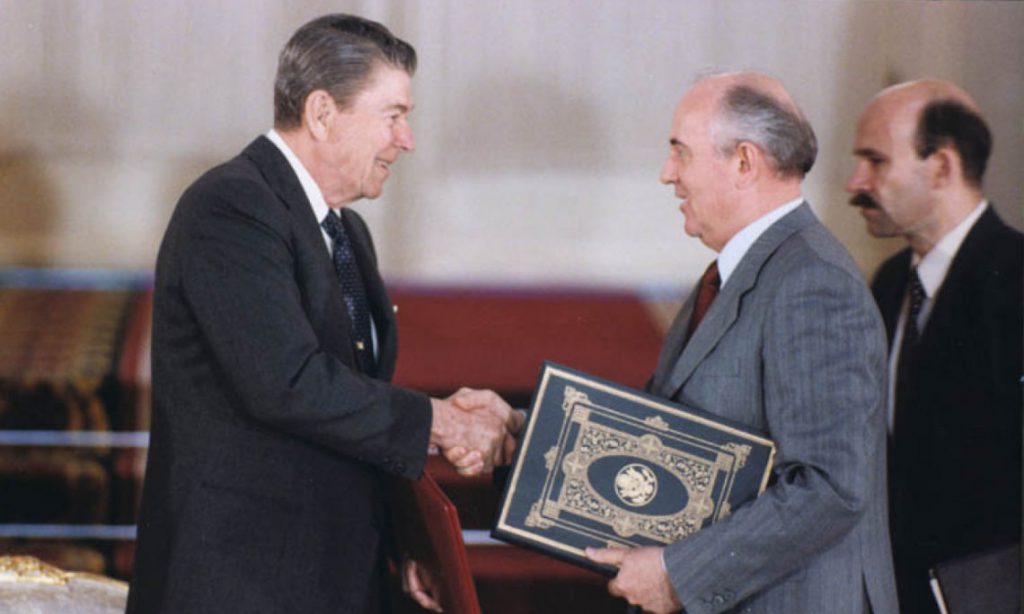
Waste Lands: America’s Forgotten Nuclear Legacy
The Wall St. Journal has compiled a searchable database of contaminated sites across the US. (view)
Related WSJ report: https://www.wsj.com
NEW & UPDATED
Nothing Found
It seems we can’t find what you’re looking for. Perhaps searching can help.
ACTION ALERTS
Nothing Found
It seems we can’t find what you’re looking for. Perhaps searching can help.
CRITICAL EVENTS
Nothing Found
It seems we can’t find what you’re looking for. Perhaps searching can help.
Nothing Found
It seems we can’t find what you’re looking for. Perhaps searching can help.
New Nuclear Media: Art, Films, Books & More
Nothing Found
It seems we can’t find what you’re looking for. Perhaps searching can help.
Nothing Found
It seems we can’t find what you’re looking for. Perhaps searching can help.

